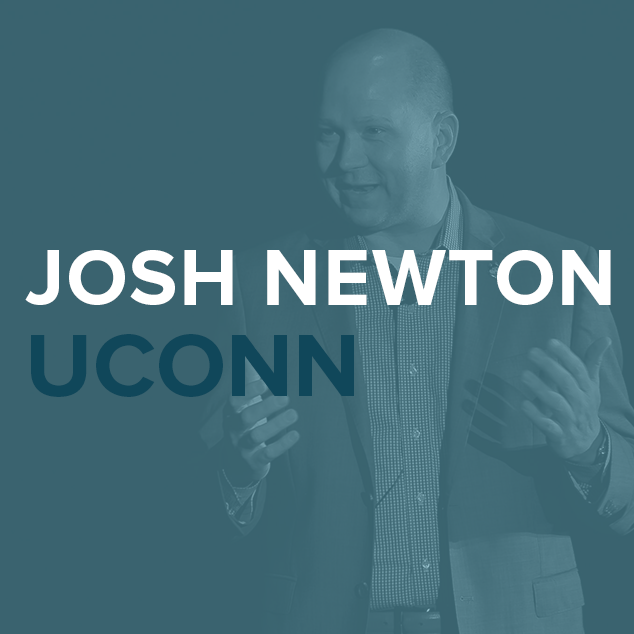We can talk until we’re blue in the face (and probably have) about taking a more modern approach to the Annual Fund. Adopting contemporary approaches commonly seen in the for-profit world and ditching, or at least reconsidering, traditional approaches that have been around for decades.
It all sounds very exciting. But what does it mean when it comes time to actually do something about it?
That’s where a lot of teams get hung up. Understandably so. It’s not easy to completely pivot your entire approach. It’s hard to go from broadly talking about enacting change to switching up the tactics of your day to day. If it wasn’t, everyone would’ve done it years ago.
But it is possible. We don’t just believe that, we know it. Josh Newton and his team at the University of Connecticut prove it.
As he readily admits, Josh has stuffed tens of thousands of envelopes for direct mail. But as he advanced in his career, he started asking why. As he asked it more frequently, things started to change in tangible ways. Which he broke down in his presentation at our conference, RAISE, last year.
Here are some of the new approaches his team is taking at UConn.
Copy the Grocery Store
OK, we admit, we do not often look for fundraising inspiration while grocery shopping. Luckily Josh did. We’re all familiar with the ability to tack a dollar onto our grocery bill in support of some cause or other. UConn decided to add that tactic to their Annual Fund strategy.
Checking out at UConn bookstores, you’ll now see an option to donate directly to their Students First Fund. Thanks to that effort they acquired 515 new donors they’d never reached before.
It’s not an initiative that breaks the mold or invents something brand new. Grocery stores have been doing it for years. But it’s a new tactic for higher ed fundraising, and it’s off to a hot start.
Think Differently About Events
Colleges have events all the time. They’re kind of hard to miss. UConn has started using them in creative ways. For a game against their rival Syracuse, they created pins saying “I’m a Dog Person” spectators could get in return for a donation, for example. It’s an easy way to pair team spirit with philanthropy.
At the football game on Veterans Day, instead of asking for donations for athletics, they set up a booth asking for donations to their Veterans boot camp program at the business school. That ask generated 168 donations, 70% coming from new donors.
By thinking creatively about events, UConn generated 503 brand new donors last year and they’re continuing to get creative with events.
Micro Targeting
When the provost asked Josh if they could do a solicitation around a scholarship for undocumented students, he paused for a moment. He knew the hot-button issue wouldn’t resonate with everyone. He also knew it would be highly motivating for lots of others. How to handle it?
They posted the university president’s letter in support of DACA on the UConn site. Alums responded immediately. They shared on social about how proud they were of their school. 1,200 of them, to be exact. And now Josh’s team can approach those people, who have already shown an interest in human rights, about making a gift for the scholarship.
Rethinking the Call Center
UConn has halved their call center. Halved it! That might be eye catching for some, but for Josh it makes perfect sense. People, generally, aren’t responding to phone calls. But there are dedicated donors who have given over the phone for years. So instead of pivoting away from the tactic completely, he diverted some of the funds and now they only use the call center to contact donors they know respond to that particular touchpoint.
A New Approach to Direct Mail
For the longest time, UConn’s direct mail pieces focused on initiatives related to an alum’s school of graduation. But people change. How many of you have careers directly related to your major? Or hobbies that revolve around it? Probably not a ton.
Now UConn pays attention to social engagement data and uses it to segment their mailing lists. So, if a business major constantly interacts with the theater department, they’ll receive direct mail focused on donation possibilities related to the arts.
What ideas will be rattling around in our brains a year from now? We’re not sure, but we have a pretty good feeling we’ll find them at RAISE in September. Get your ticket today.
